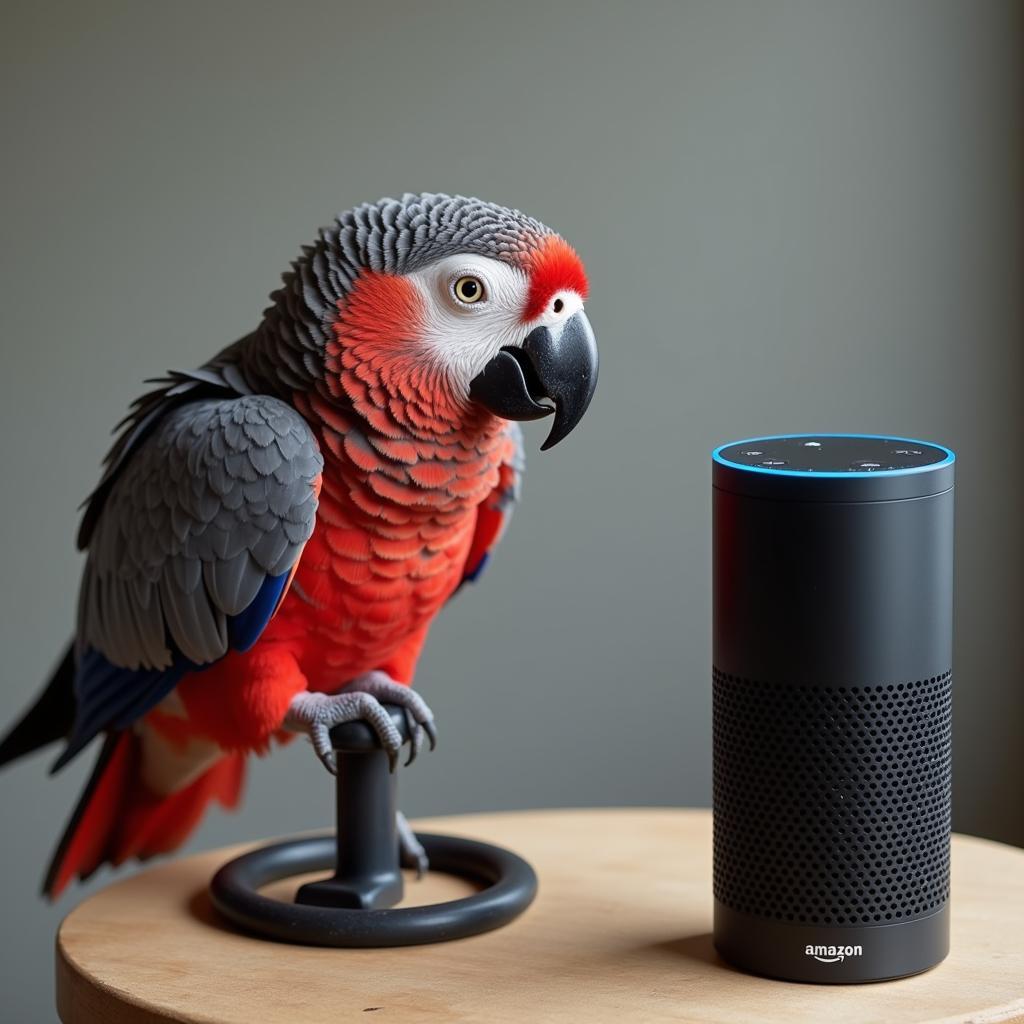7 African Gods and Goddesses: Exploring the Pantheon of the Continent
African mythology is rich and diverse, with a vibrant pantheon of gods and goddesses that have been worshipped for centuries. These deities embody the forces of nature, human emotions, and the very essence of life itself. They are woven into the fabric of African culture, influencing everything from art and music to social customs and beliefs.
Today, we’ll embark on a fascinating journey through the realm of African deities, exploring the stories and attributes of seven prominent figures from different regions of the continent. This exploration will shed light on the rich tapestry of African mythology and how it continues to inspire and influence people across the globe.
1. Anubis (Egypt)
Often depicted as a jackal-headed god, Anubis plays a crucial role in Egyptian mythology. Known as the god of the dead, he is responsible for guiding souls to the afterlife. His role is intricately linked with the mummification process, ensuring that the body is preserved for the journey into the next realm.
Why is Anubis Important in Egyptian Mythology?
Anubis’s presence in Egyptian mythology speaks to their profound connection to death and the afterlife. He embodies the belief that death is not an end but a transformation, and that the soul must be prepared for its journey into the next life. Anubis acts as a guide and protector, ensuring that souls are judged fairly and that the deceased receive the proper honors in the afterlife.
“Anubis is the guardian of the dead, the one who ensures that each soul finds its way to the afterlife. He is a representation of the cyclical nature of life and death, and a reminder that even in death, there is still a purpose.” – Dr. Amina Ahmed, Egyptian Archaeologist
2. Obatala (Yoruba, Nigeria)
Obatala is a revered deity in Yoruba mythology, known as the creator of the world and the patron of the Yoruba people. He is often associated with purity, wisdom, and creation. He is said to have created the earth and the first humans from clay.
Obatala’s Legacy in Yoruba Culture
Obatala’s creation myth emphasizes the importance of artistic expression and the power of creation. He is also associated with the art of divination and the practice of traditional Yoruba medicine.
“Obatala is the source of all creation, the one who gave birth to the world we know. His wisdom and compassion guide us all, reminding us of the importance of harmony and balance in the universe.” – Chief Adebayo Ojo, Yoruba Elder
3. Oshun (Yoruba, Nigeria)
Oshun is a powerful Yoruba goddess associated with beauty, love, water, fertility, and wealth. She is often depicted as a beautiful woman adorned with jewels and adorned with freshwater pearls. Oshun is known for her healing powers and her ability to bring good fortune to those who honor her.
Oshun’s Influence on Yoruba Rituals and Practices
Oshun’s presence is felt in various Yoruba rituals and ceremonies. She is invoked for blessings in matters of love, marriage, and fertility. Her worship is often characterized by elaborate dance performances and offerings of honey, wine, and perfume.
“Oshun is the embodiment of feminine power and beauty. Her presence is felt in the gentle flow of water, the warmth of the sun, and the sweetness of honey. She teaches us the importance of love, compassion, and the power of our own feminine energy.” – Mrs. Adeola Adewumi, Yoruba Priestess
4. Nyame (Akan, Ghana)
Nyame is the supreme god in Akan mythology, often described as the creator of the universe and the source of all life. He is considered the most powerful deity and is often depicted in the form of a bird or a rainbow.
Nyame’s Role in Akan Culture and Belief
Nyame is revered in Akan culture, and his name is often invoked in prayers and rituals. He is seen as a benevolent deity who watches over humanity and offers guidance and protection.
“Nyame is the supreme being, the one who watches over us all. He is the source of life and the ultimate source of all wisdom. We turn to him in times of need and strive to live our lives in accordance with his divine laws.” – Nana Kwame Adu, Akan Chief
5. Mami Wata (Congo)
Mami Wata is a powerful water spirit who appears in various African cultures, particularly in the Congo region. She is often depicted as a beautiful woman with snake-like attributes, symbolizing her connection to the water.
Mami Wata’s Influence on Art and Storytelling
Mami Wata is a captivating figure in African art, music, and storytelling. She is often associated with wealth, fertility, and beauty, but she is also considered a powerful and dangerous spirit.
“Mami Wata is a powerful spirit who commands both respect and fear. She is the mistress of the waters, and she can bring both blessings and misfortune. Her presence is felt in the rhythms of the sea and the whispers of the wind.” – Chief N’zanza, Congolese Shaman
6. Thundera (Zulu, South Africa)
Thundera, also known as Nkulunkulu, is the supreme god in Zulu mythology. He is often depicted as a powerful and mysterious figure who controls the weather and the fate of humanity.
Thundera’s Importance in Zulu Culture
Thundera is a prominent figure in Zulu culture, and his name is often invoked in prayers and rituals. He is seen as a powerful deity who controls the forces of nature and the destiny of humanity.
“Thundera is the supreme being, the one who commands the rain and the storms. He is the ultimate authority, and we rely on his wisdom and guidance in all aspects of our lives.” – Chief Madlala, Zulu Elder
7. Shangó (Yoruba, Nigeria)
Shangó is the Yoruba god of thunder, lightning, justice, and music. He is often depicted as a powerful warrior carrying a double-headed axe, symbolizing his strength and authority.
Shangó’s Cultural Significance
Shangó is a popular deity in Yoruba culture, and his worship is often characterized by vibrant drumming and dance performances. He is associated with strength, justice, and the ability to bring down punishment upon those who transgress the law.
“Shangó is the embodiment of justice and power. He is a force to be reckoned with, and he stands as a protector of the innocent. His drumbeat echoes through the earth, reminding us of the importance of order and righteousness.” – Chief Olatunji Afolabi, Yoruba Priest
Conclusion
The seven African gods and goddesses discussed above represent just a small glimpse into the vast and diverse pantheon of deities that have been worshipped across the continent for centuries. These deities embody the beliefs, values, and cultural expressions of African peoples, highlighting the rich tapestry of African mythology and its enduring impact on society.
Frequently Asked Questions
What are the main differences between African deities and Greek or Roman gods?
African deities often embody forces of nature, human emotions, and the very essence of life itself. Their stories are deeply intertwined with the environment, beliefs, and daily practices of the people who worship them. In contrast, Greek and Roman gods are more abstract and often have a more hierarchical structure.
How do African deities continue to influence contemporary society?
African deities continue to influence contemporary society through art, music, literature, and cultural practices. Their stories and symbols are often used to express identity, heritage, and spiritual beliefs.
Are African deities considered to be true “gods”?
Whether African deities are considered to be true “gods” is a matter of personal belief. Some individuals may believe that these deities are actual supernatural entities, while others may view them as symbolic representations of natural forces, human emotions, or cultural values.
What are some of the most common symbols associated with African deities?
Common symbols associated with African deities include animals, natural elements (like water, fire, and thunder), objects (like axes, drums, and staffs), and colors. These symbols are often used in rituals, art, and storytelling to represent the power and attributes of the deities.
Is it appropriate to use African deities in modern art and literature?
The use of African deities in modern art and literature can be a sensitive topic. It is important to approach it with respect and cultural sensitivity. It is crucial to research and understand the cultural context of the deities, and to avoid misrepresenting or appropriating their imagery.
This article provides a starting point for exploring the captivating world of African deities. With its rich history and profound cultural significance, African mythology offers a fascinating window into the beliefs, values, and traditions of the continent.


